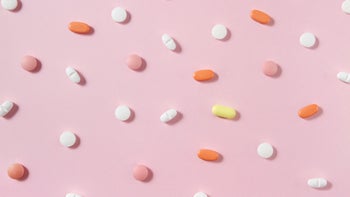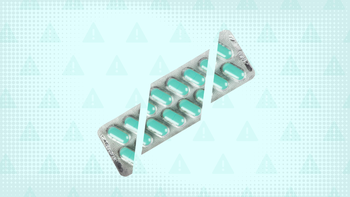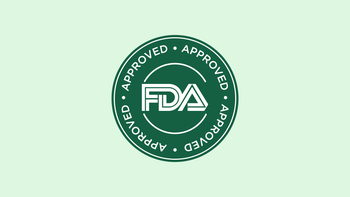
9 Risperidone Side Effects and How to Manage Them
Key takeaways:
Risperidone (Risperdal, Risperdal Consta) can cause several side effects. Common effects include nausea, fatigue, and movement-related symptoms. Weight gain is also possible.
Serious risperidone side effects include neuroleptic malignant syndrome, more serious movement problems, and a higher chance of falling.
Mild risperidone side effects can typically be managed at home and may be relieved by changing how you take it. For more serious side effects, your healthcare provider may recommend stopping risperidone altogether and trying a different treatment.
Table of contents

Risperidone (Risperdal, Risperdal Consta) is an atypical antipsychotic. It’s used to treat mental health conditions such as schizophrenia and bipolar disorder. Risperidone is thought to work by balancing levels of certain chemicals in the brain, including dopamine and serotonin.
Although risperidone is useful for mental health conditions, it may cause bothersome side effects. These can range from mild and manageable to severe and dangerous. Let's review nine notable risperidone side effects and how you might manage them. But keep in mind these aren’t the only side effects that are possible.
1. Sleep changes
One of the most common risperidone side effects is a change to your sleep patterns. This could mean either trouble sleeping or feeling extra sleepy. Trouble sleeping seems to be more common for adults. Drowsiness is more common for children. But either can happen, regardless of your age.
How to manage sleep changes
Changing when you take your risperidone doses may help relieve sleep problems. If risperidone makes it harder for you to sleep, talk to your healthcare provider about taking a once-daily dose in the morning. On the flip side, if it makes you feel drowsy, ask your provider about taking a once-daily bedtime dose.
Once-daily dosing isn’t an option for everyone. In these cases, your provider may suggest taking a larger portion of your total daily dose at a certain time.
If you’ve already made these changes and are still bothered by this risperidone side effect, let your provider know.
2. Stomach-related side effects
Risperidone can cause a number of stomach-related side effects. These may include nausea, constipation, and indigestion. Between them, nausea was the most commonly reported in many clinical trials. You may notice these risperidone side effects more when you first start the medication.
How to manage stomach side effects
If you’re feeling nauseated, you can try taking risperidone with a small meal or snack. You can also talk to your healthcare provider about trying a medication that helps with nausea.
If you’re experiencing constipation, you can try drinking more water and eating a high-fiber diet. You can also talk to your provider about trying an over-the-counter (OTC) laxative or stool softener.
3. Dry mouth
Risperidone commonly causes dry mouth. This is because it interferes with a natural chemical in the body called acetylcholine. This chemical plays a role in how our bodies make saliva, among other uses.
How to manage dry mouth
If you’re experiencing dry mouth from risperidone, make sure to stay hydrated. Sucking on ice chips or chewing sugar-free gum can help, too. If these don’t seem to work, saliva substitutes like Biotene are available OTC. It’s also important to follow good oral hygiene practices, such as brushing and flossing twice a day. This can help prevent dental problems, like cavities, which may be more likely to happen with chronic dry mouth.
4. Metabolic changes like weight gain and higher blood glucose
High blood glucose (sugar), high cholesterol levels, and weight gain can occur with risperidone. You may also notice your appetite increases while taking the medication. Over time, these metabolic changes may raise your risk of having a heart attack or stroke.
Make sure your healthcare provider knows if you already have health conditions like diabetes, high cholesterol, or heart disease. They may want to monitor you more closely while you’re taking risperidone to make sure the medication doesn’t worsen these conditions.
How to manage metabolic changes
If your appetite has increased significantly, try to prioritize purchasing and eating healthy foods like fruits, vegetables, and whole grains. Limit unhealthy fats (like saturated fat) and sugar when possible. Exercising regularly may also help manage weight gain while taking risperidone.
Your healthcare provider may monitor your blood glucose and cholesterol levels more closely while you’re taking risperidone. Be sure to go for any recommended blood tests on time. Depending on your health history, your provider may also prescribe medications to help with weight gain and metabolic changes.
5. Movement-related problems
Movement-related problems are a common risperidone side effect. These are called extrapyramidal symptoms (EPS). They include tremors, muscle spasms, and feeling unable to sit still. The risk of EPS is higher with risperidone than with other atypical antipsychotic medications.
One type of EPS that’s more serious is tardive dyskinesia (TD). It causes repetitive movements, often around the face or mouth. Tongue or jaw thrusting are common symptoms of this risperidone side effect. In severe cases, TD can become permanent.
How to manage movement problems
Talking to your healthcare provider is the best way to manage movement-related problems after starting risperidone. They may want to schedule an appointment with you to see how severe your EPS are. It’s important for a provider to recognize TD as early as possible. If caught early, this serious risperidone side effect may be reversible.
If you or a loved one develop EPS while taking risperidone, a healthcare provider may suggest lowering the dose or switching to a different antipsychotic. There are also additional medications, such as benztropine, which can help lessen certain symptoms.
Be sure to discuss options for relieving EPS with your provider. Don’t attempt to stop or change your risperidone dose without their guidance.
6. Inability to think or move normally, and a higher risk of falling
Risperidone may affect how your brain functions and impair your motor skills (such as your ability to maintain balance, walk, or move your body). This can lead to extreme drowsiness, impaired judgment, and falls. Some people have a greater risk for this than others, including older adults and those with health conditions that affect their brain function. It’s also more likely to happen if you take higher doses of risperidone or other medications that affect the brain, like benzodiazepines.
How to manage coordination problems
When first starting risperidone, or shortly after a dose change, avoid driving or performing other tasks that require focus. Wait to see how the medication makes you feel. This risperidone side effect may improve after your body adjusts to the medication.
Similar to managing drowsiness, taking a once-daily dose in the evening may help limit coordination problems during the day. If this dosage change isn’t an option for you, discuss how to best manage this risperidone side effect with your healthcare provider. In some cases, they may suggest a lower dose, or switching to another antipsychotic.
7. Fainting and orthostatic hypotension
A drop in blood pressure when you change positions from sitting to standing (orthostatic hypotension) can happen with risperidone. This is more likely to happen when you first start taking it or when you raise your dose. Orthostatic hypotension can make you feel dizzy or cause you to faint. This can put you at a higher risk for falls or accidental injury. If you’re also taking blood pressure medications, your risk of this risperidone side effect may be higher.
How to manage fainting and orthostatic hypotension
Staying hydrated and changing positions slowly is important when starting or changing the dose of risperidone. You should also grab onto a sturdy or immovable object when you stand up. These simple steps can help prevent dizziness and fainting.
Let your healthcare provider know if you pass out at any point while taking risperidone. You should also contact them if the dizziness seems severe or doesn’t improve after taking the same dose for a few weeks.
8. Long and painful erections
Rarely, people have reported priapism while taking risperidone. Priapism is a long, painful erection that lasts longer than 4 hours. This serious risperidone side effect in males can happen at any time while taking the medication.
Due to how rarely priapism happens, little is known about who has a greater risk of developing it. Let your healthcare provider know if you have a history of priapism, especially if past episodes were caused by medications.
How to manage priapism
Priapism is a medical emergency. If you experience priapism with risperidone, seek medical care immediately. In some cases, surgery may be needed to treat it. If left untreated, permanent damage can occur.
9. Neuroleptic malignant syndrome
Neuroleptic malignant syndrome (NMS) is a rare but life-threatening risperidone side effect. It can happen when dopamine levels in the body drop too fast. It’s characterized by rigid muscles, high fever, and severe confusion or disorientation. It’s more likely to happen if your risperidone dosage is raised too quickly.
How to manage NMS
NMS is a medical emergency. If you think you may be experiencing it, seek medical help right away. NMS requires treatment in a hospital setting. If not treated appropriately, it can be fatal. If you have NMS, risperidone will be stopped.
When should I contact my healthcare provider about risperidone side effects?
Common risperidone side effects, like sleep changes, stomach side effects, and dry mouth, can typically be managed at home. Changing how you take your doses and staying hydrated can often help make them less bothersome. If these don’t go away or continue to interfere with your daily routine, speak with your healthcare provider.
Some risperidone side effects, like metabolic changes, fainting, and coordination problems, are common. However, they can lead to more serious problems if not monitored properly. It’s best to discuss ways to manage these upfront with your provider.
Serious side effects like NMS and priapism are rare but require immediate medical attention. They shouldn’t be ignored. If you believe you’re experiencing them, get help right away.
The bottom line
Common risperidone side effects include sleep changes, nausea, and dry mouth. Weight gain, coordination issues, and fainting are also possible. More serious risperidone side effects include movement problems, priapism, and NMS. Discuss ways to manage or limit side effects with your healthcare provider.
Why trust our experts?


References
D’Souza, R. S., et al. (2023). Extrapyramidal symptoms. StatPearls.
Janssen Pharmaceuticals. (2022). Risperdal [package insert].
Was this page helpful?
Related Articles
Browse medications
View AllResearch prescriptions and over-the-counter medications from A to Z, compare drug prices, and start saving.





















